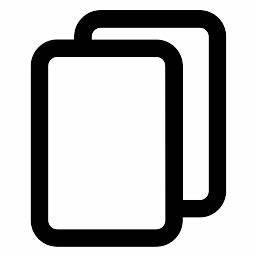FAQs for the Initiation of an Antidumping Duty and/or Countervailing Duty Investigation
• Once Commerce has initiates an AD/CVD investigation, the U.S. International Trade Commission (ITC) is required by statute to determine whether there is a reasonable indication that the domestic industry is materially injured as a result of the dumped/subsidized imports. The ITC makes this determination no later than 45 days after the filing date of a petition.
• If the ITC’s preliminary injury determination is affirmative, the investigation/s will continue. In a CVD investigation, Commerce will be scheduled to announce its preliminary determination 65 days after the initiation date; in an AD investigation, Commerce will be scheduled to announce its preliminary AD determination 140 days after the initiation date. These deadlines may be extended under the statute. Click here to see Commerce fact sheets for specific case deadlines.
• If the ITC’s preliminary injury determination is negative, the investigation/s will be terminated and imports will not be subject to antidumping or countervailing duties.
• For more information about the timeline of an AD/CVD Investigation, please click here.
Under U.S. law, Commerce must initiate an AD or CVD investigation if a petition filed by producers or workers in the United States meets the statutory criteria for initiation. Commerce cannot, by law, consider extra-statutory factors when determining whether or not to initiate an investigation. The petitions filed met the statutory requirements for initiating an AD or CVD investigation.
Commerce will issue questionnaires to producers and/or exporters of the subject merchandise. A questionnaire is a tool that Commerce uses to obtain information from foreign producers of the merchandise under investigation, in order to determine whether dumping or subsidization is occurring. In a CVD investigation, a questionnaire will also be issued to the Government of the country subject to the investigation. All interested parties will have an opportunity to provide factual information and argument on the case record for Commerce’s consideration. The statute requires that Commerce will issue a preliminary decision 140 days after initiation in an AD investigation, and 65 days after initiation in a CVD investigation. These deadlines may be extended under certain circumstances. Only after Commerce makes affirmative preliminary determinations will U.S. Customs and Border Protection be instructed to collect cash deposits on imports of the merchandise under investigation.
The statute provides that Commerce will normally investigate each producer and exporter of the merchandise under consideration. However, if there is a large number of producers and exporters, then Commerce has the discretion to limit its examination to the number of producers or exporters which it can reasonably investigate. Commerce intends to select respondents using either import data compiled by U.S. Customs and Border Protection (CBP) or information supplied by the potential respondents themselves to determine the producers or exporters who account for the largest volume of subject merchandise from the exporting country that can be reasonably examined. Regardless of the method chosen, Commerce will provide parties an opportunity to comment on the respondent selection process. Information about the selection of particular producers or exporters under these circumstances may be found in the initiation notice published in The Federal Register.
Yes. Commerce maintains an electronic database called The Antidumping and Countervailing duty Centralized Electronic Service System (ACCESS), which serves as the repository for all documents filed in an AD/CVD proceeding. ACCESS provides the capability for registered Guest Users to search for and view Public Documents and Public Versions using the official case number specified in the fact sheet.
Yes. Commerce has set aside a 20-day period during which parties may comment on the scope and make arguments as to whether certain products are or are not covered by the scope. Comments should be filed electronically using ACCESS.
If both Commerce and the ITC make affirmative preliminary determinations, duties will be collected on the date of the publication of Commerce’s preliminary determination in the Federal Register. If the petitioner alleges critical circumstances, duties may be collected 90 days prior to the publication in the Federal Register (see next questions for more information).
Usually, an importer can import subject merchandise prior to Commerce’s preliminary determination without being liable for antidumping or countervailing duties. However, in anticipation of the imposition of AD/CVD duties, the importer could deliberately import and stockpile large quantities of a product under investigation prior to Commerce’s preliminary determination in order to avoid paying duties later. In order to counter this type of activity, U.S. law allows Commerce to retroactively apply AD/CVD duties for a period of 90 days prior to the preliminary determination in the Federal Register, when the U.S. domestic industry alleges that “critical circumstances” are present. Whether critical circumstances are found and whether duties on these pre-preliminary entries are collected depends on affirmative findings by both the Department of Commerce and the International Trade Commission.
Not necessarily. The petitioner may make critical circumstances allegations at any time during the investigations up until three weeks before the final determinations.
